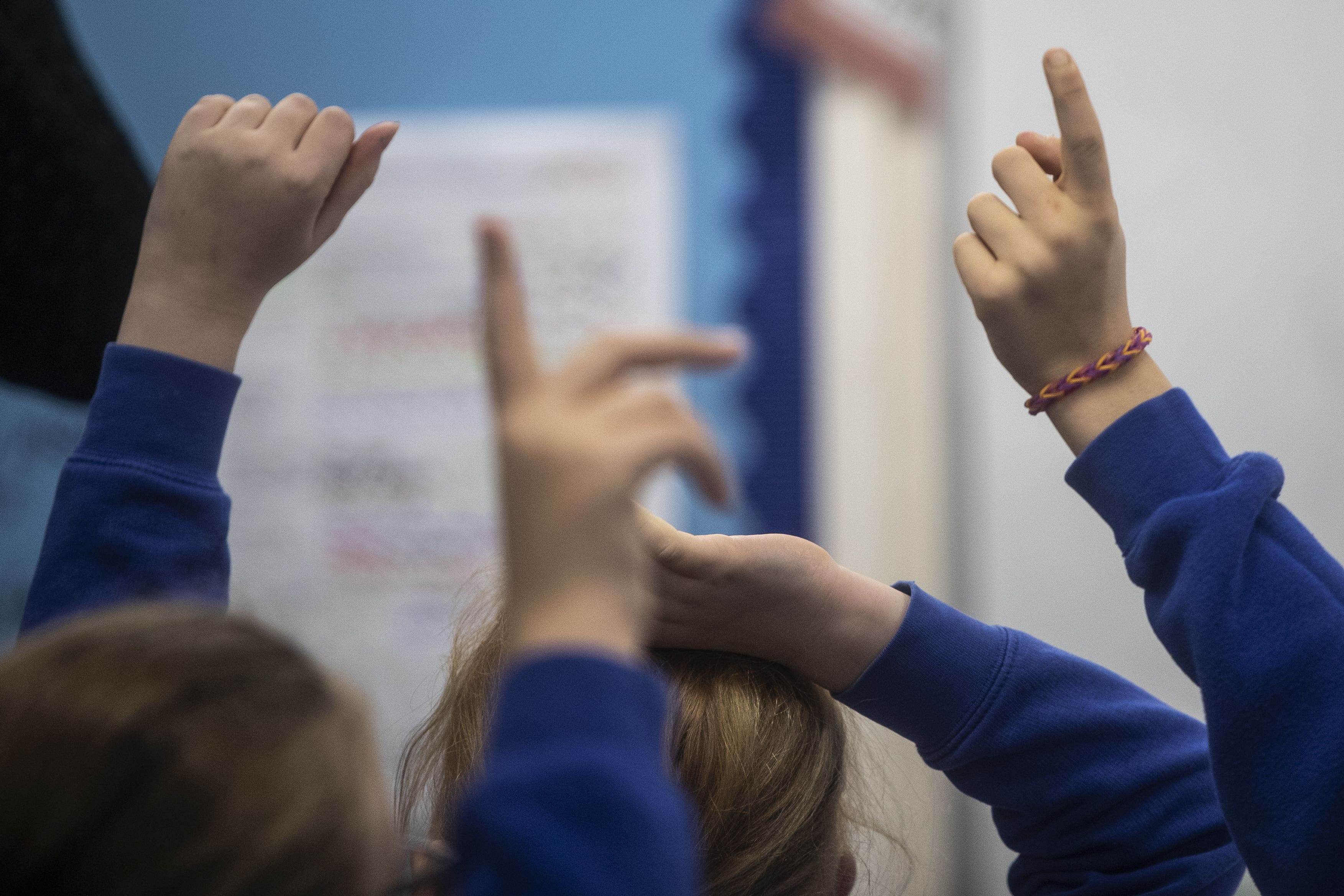Children refusing to go to school a big issue for parents, says charity
Parents and carers struggling with the issue of school refusal said Covid-19 lockdowns had an impact on their children, Action For Children found.

A child’s refusal to go to school due to anxiety has become the number one issue for parents and carers seeking advice, a children’s charity has said.
Action For Children said an article on its website offering advice on how to deal with the issue was visited more than 57,000 times in the year to March, compared with 35,552 the previous year.
It comes after the Commons Education Committee warned last month that school absence rates, which worsened during the pandemic, have seen “no significant improvement” and are “of great concern”.
High levels of absence from school in England is a huge problem for the children missing school and their families
The cross-party group of MPs, which launched an inquiry into persistent absence and support for disadvantaged pupils in January and reported their findings in September, said more than a fifth (22.5%) of pupils are persistently absent – around double the pre-pandemic rate.
Some 1.7% of all pupils are severely absent compared with less than 1% pre-pandemic, while the overall absence rate has risen to 7.6%, up from around 4%–5% before the pandemic.
A pupil is classified as a persistent absentee if they miss 10% or more of their schooling and as a severely persistent absentee if they miss 50% or more.
Action For Children said its Parent Talk service – which offers free information, advice and support – saw 6,869 parents and carers use its confidential live chat service last year.
The charity said parents and carers struggling with the issue of school refusal said Covid-19 lockdowns had an impact on their children, with some saying the option of learning from home compounded their child’s reluctance to attend school post-pandemic.
The charity said school refusal usually happens when a child is too anxious to go to school, and is sometimes called school anxiety or school phobia.
Parents and carers often feel they do not know where to turn, and are struggling to access specialist support for their child, such as mental health services or support for special educational needs.
Joe Lane, head of policy and research at Action For Children, said: “High levels of absence from school in England is a huge problem for the children missing school and their families.
“As well as providing an education, schools can support children to develop emotionally and socially, promote their wellbeing and help keep them safe. Ultimately, that helps them to grow up to be thriving adults, better able to contribute to society and the economy.”
The charity is calling on the Government to “follow through” on plans to roll out family hubs to support families, and said it should also “boost the numbers of attendance mentors by making them a core part of new family help services”.
Children’s Commissioner Dame Rachel de Souza welcomed the charity’s recommendations for more family hubs and a strengthened attendance mentors programme.
She said: “Children who require additional support and receive it in school are happier than the overall cohort, which is why we need to ensure families get the right early help, and that schools have the tools they need to respond quickly to factors like poor mental health or special educational needs. Every child deserves to access their right to education.”
Paul Whiteman, general secretary of school leaders’ union NAHT, said: “Unfortunately, a decade of cuts has seen the teams that used to support schools with attendance decimated, and large parts of the country do not benefit from either the Government’s attendance hubs, or its pilot mentoring programme for those pupils absent most often.
“This is not an issue schools can tackle alone, and clearly parents are in need of support too. The Government really does need to redouble its efforts and commit the necessary resources to tackle this issue.”
A Department for Education spokesperson said: “The vast majority of children are in school and learning with recent data showing there were 380,000 fewer children persistently not in school last year. We are taking action to increase attendance because it is vital for a child’s education, wellbeing and future life chances.
“We have expanded our attendance hubs, which will support over 400,000 pupils across 14 hubs and provided a toolkit for schools on communicating with parents on this issue.
“Our mentoring programme, delivered by Barnardo’s, sees trained mentors work directly with 1,665 persistently and severely absent children and their families to understand and overcome the barriers to attendance and support them back into school.”
Bookmark popover
Removed from bookmarks